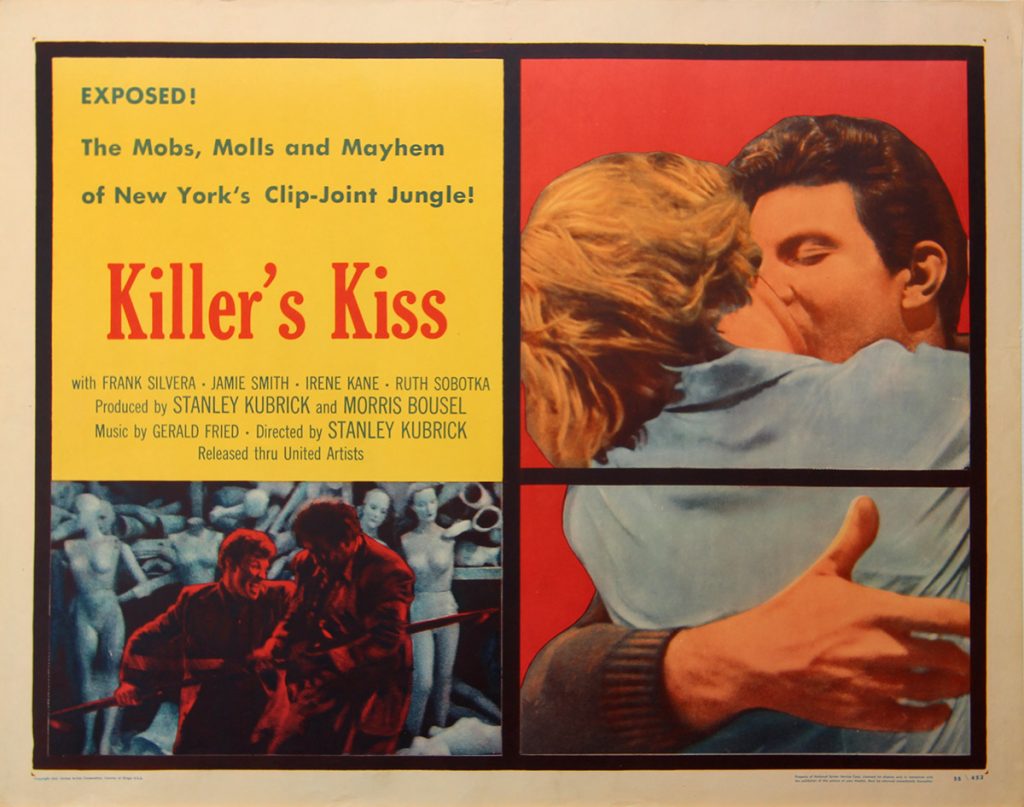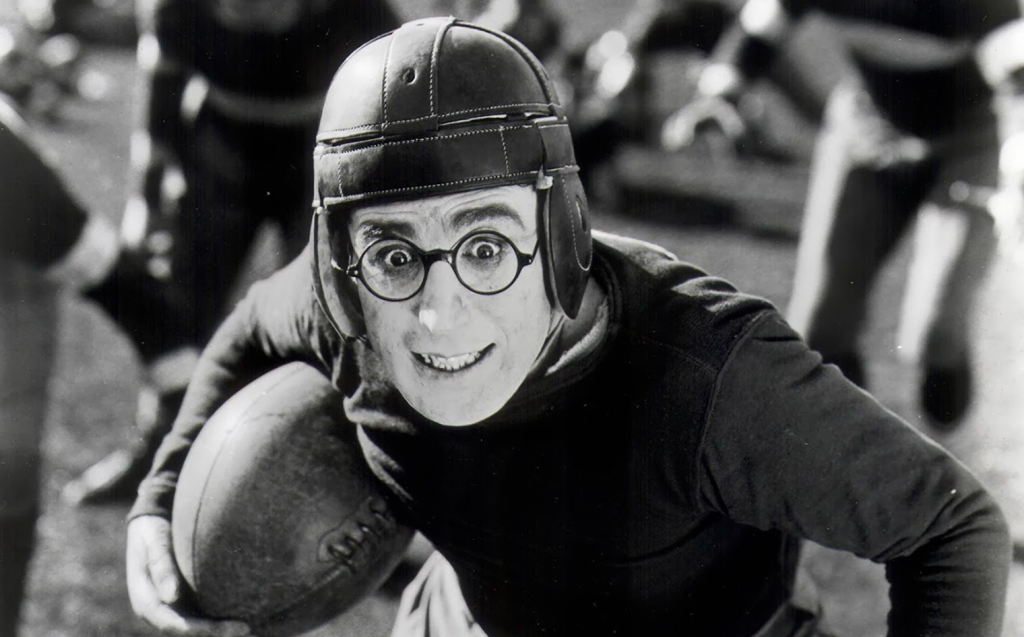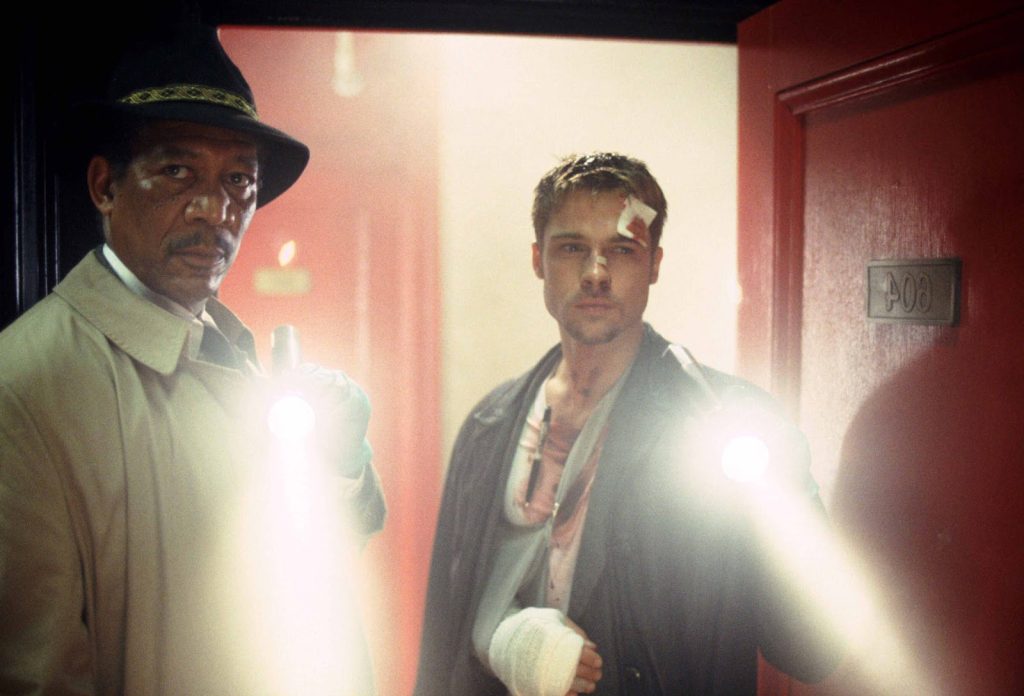For Valentine’s Day, we’re once again looking at the wide variety of onscreen relationships: movies about ill-fated couplings, toxic partners, and unconventional romances, to help offset the sticky-sweetness of the season. Follow along here.
Charity (played with shattering vulnerability by an energized Shirley MacLaine) is desperate for something to change. She lives almost entirely in her self-constructed world—a New York that is just left-of-centre, largely fabricated with shades of reality. Sweet Charity opens with the character skipping across the city, on her way to meet Charlie (Dante DiPaolo), her silently aloof, conniving boyfriend. She has drained her bank account, stuffing her life savings in a purse to share with him, ignorant of his removed disdain for her. When he pushes her from Central Park’s Gapstow Bridge, she is literally plunged into an unavoidable reality, one that leaves her gasping for relief.
From there,the plot plays out unexpectedly, folding itself into asymmetrical patterns. Roughly speaking, legendary director Bob Fosse follows her various exploits as she admits her discontent; she goes on a night out with the esteemed Italian actor Vittorio Vitale (Ricardo Montalban), she goes for a job interview, she even briefly joins an alternative-church-slash-cult. All of this is spurred and undercut by her desire to be seen and loved. Fosse experiments with the frame and the sense of audience to express these embarrassingly human impulses in markedly different settings. It opens with Charity rushing across packed streets, onlookers fleetingly taken with her palpable optimism. But in later, crucial moments the inbuilt audience of New York falls away, dissipating under the pressure of her unwieldy dreams.
Notably, after the sweet, bumbling Oscar (John McMartin) proposes to her, Fosse stretches the bounds of her subconscious, setting the scene for her to revel in a snapshot of joy. She describes the music that pours from her, thrillingly summarising it with a breathy: “Somebody loves at me…last!” Projecting her wants, wide-armed across a block empty of passerby, solely embodied by the marching band, clad in red and buzzing around the grey square. The ‘I’m a Brass Band’ number is in conversation with an earlier moment of elation, where Charity skips around Vittorio’s apartment after their exclusive date, belting ‘If They Could See Me Now’. The need to be loved, understood, and seen blurs into a single urge early on, clarified by the time Oscar stumbles (mid-panic attack) into her life. These songs are not explicitly about love; instead they are more about the shifting relationship to being perceived in proximity to love, treated as someone worthy of such intensity. Wanting to be seen never goes away, but with a kind person, its importance is diluted.

With this, Sweet Charity stumbles into something honest regarding the performance of love—which even in its purest form is a matter of negotiation between those within the relationship and those without. Identity can’t exist in a vacuum; it is a soft object, collaboratively formed and reformed by observers and participants. Romance is about the images we project (never more so than now in the age of social media), and as a filmmaker Fosse expresses that with typical aplomb. While dialogue is filmed in traditional shot-reverse-shot sequence, steady in its rhythm, musical moments are interrupted with frequent, random close-ups and cutaways. Through this Fosse catches the flickers of unrehearsed ease; a cigarette flung to the dance floor, a knowing smirk, Charity playing with her gourmet meal,beaming at the camera. All these clips make up Fosse’s visual grammar, interstitial moments congealing into something glittering, singular, and lovely.
But this choppy cutting also serves as a meditation on the fleeting nature of Charity’s romances. Her loves appear and disappear, flashes in the pan that evaporate into the mess of the city as soon as the blur of her charm and energy settles into a definite shape. For Charity–for all of us—the most painful part of a breakup is acknowledging the gap that maybe was always there. The unknowable part of them, now more definite than the person who had been around; the vacant tear they leave bigger than the life they had once offered you. The earth-shattering, mind-bending logic test of the breakup clutches Charity after Oscar leaves her. She wanders around an uncaring New York, running through questions that were always there, lying dormant in the haze of love: “Where am I going? And what will I find? What’s in this grab bag that I call my mind?”
For Charity, love is the unsustainable life force that keeps her pressing forward. Affection is routine for her, the process of falling as appealing as the resulting state. Or as she puts it in that final song: “Do I keep falling in love just for the kick of it?” As she slides into the horizon–part-crestfallen, part-in love—it is clear that as long as heartbreak is tangible and in reach, love has not lost its potency. Another relationship has come and gone, and for Charity this only affirms that the wheel of romance is worth submitting to.
“Sweet Charity” is available on Blu-ray from KL Studio Classics.



